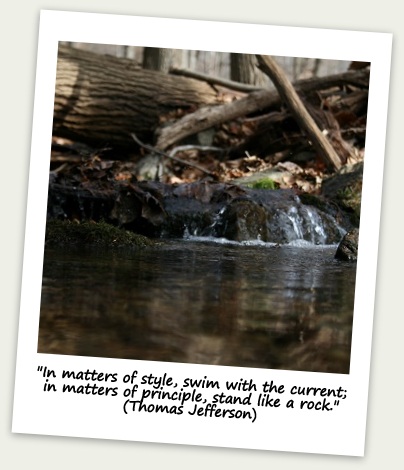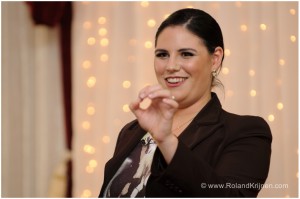Authentic Leadership Styles – Being True to You 2
In this weeks guest post business coach and HR professional Lisa Thomson shares and reflects upon a recent experience:
Authentic Leadership Styles – Being True to You
By Lisa Thomson

“This above all: to thine own self be true.”
(Shakespeare)
This is a more of a personal reflection than many of my usual LinkedIn posts and content but is, I think, relevant in a professional context and I hope will be an interesting and stimulating point for discussion….
Recently (a couple of weeks ago) I was turned down for an opportunity I’d pursued and received feedback that I’ve been mulling over and digesting since. I always appreciate feedback, positive and negative, as constructive feedback is essential for our personal development. I try to do the same myself when recruiting – for the benefit of candidates.
I have to admit though, this one stung me a little. I was told I need stronger “gravitas and presence” to make a better first impression, and that with my current approach, for that opportunity, I’d run the risk of “being eaten alive”. Wow! As a result, I was very disappointed in myself, feeling I hadn’t represented my skills and approach to the best of my ability, and that I’d let myself down.
I’ve spent some time since though reflecting, and so share these thoughts in the hope this might be helpful and thought-provoking to others in my network too, or at least generate some discussion.
First Impressions Count…
Those of you who’ve met me in person I expect will have noticed that I am quietly spoken. I’m aware of this and have worked very hard to build my confidence and to project my voice, both throughout my earlier career and particularly during my recent participation on the Saltire Fellowship programme and studying in the States at Babson College, Boston.
I believe the only way to get better at the things you struggle with is to embrace them, and to push yourself out of your comfort zone as often as possible. For example when attending events, I always make an effort to ask questions and engage in group discussions.
I am a passionate networker, something I’ve learned to love – getting out to meet new contacts and share ideas as often as possible. I’ve had regular opportunities to develop my public speaking skills, through my role as Director for Scotland at Startup Grind, pitching at startup events & competitions, and most recently giving a talk at the launch of the Entrepreneurial Scotland Future Leaders network at Edinburgh Castle. I’m massively grateful for all of these opportunities and embrace these whenever I can.
Preferences and Styles….
My Myers-Briggs type, for those of you who are interested in psychometrics, is INFJ. A fantastic book for the introverts among us (and for the extroverts too!) is Susan Cain’s ‘Quiet’ – a great read on the often undervalued power of introverts and why those who shout the loudest are sometimes not the ones we should focus attention on…..
Having received the recent feedback mentioned above, I wondered whether I should have represented myself differently at the meeting, asserted myself more strongly, raised my voice louder or taken a more challenging approach. Perhaps. We can always improve ourselves and self and personal development is the only way.
However I also think that there is something to be said for staying true to yourself, and being authentic – and perhaps there is a point where, if we try too hard to be something we are not, we risk losing what makes us different and successful. In Boston, I attended a workshop with the inspiring Dorie Clark, author of Reinventing You: Define Your Brand, Reimagine Your Future.
One enduring take away from that for me was:
“Your reputation lasts for a long time, and needs to be treated with respect. You won’t get very far if you try to be something you’re not. Rather, your personal brand is about figuring out who you really are and what you do best, and then living that brand out. It’s the essence of authenticity.”
In practice….
In my HR work, I regularly deal with tough situations. I’ve managed change projects, restructures, downsizing and very challenging employee relations issues, and received regular feedback from managers and leaders that my support and guidance has been invaluable – a strong and calming presence, keeping everyone right and on track in tough situations. I hugely appreciate that. I’ve managed these situations in my own style and my own tone of voice.
I believe I don’t need to shout to be heard, so long as what I have to say is credible and I have the knowledge and reasoning to back it up, and that the best way to gain respect and authority is through building positive relationships and building rapport – skills I do well, and am proud of.
I’m also not afraid to stick up for myself and what I believe in. Specializing in early stage and often founder-managed high-growth businesses, I’ve worked with some very strong and challenging characters during my career and am proud to have earned their ears, support and respect.
I probably don’t come across as a domineering character. I might not thrive in a ‘dog eat dog’ environment. However I’ve been privileged so far in my career and education to work with a number of incredibly supportive previous managers, mentors and contacts, who have believed in me, listened and helped to build my confidence and it’s in that type of positive environment I excel and thrive.
Summing Up….
And so what? Am I trying to lick my wounds in the face of rejection? I hope not. In summary, I think it’s important to know yourself, your strengths, to play to those strengths and to be authentic. It’s important to listen to feedback, take it on board, but also filter it – stay true to who you are. It might not be for everyone, but what matters most is that it’s right and works for you.
As a business coach, I work with clients to help develop confidence and leadership and management skills, and I’d love to hear your feedback on my thoughts above and any personal style or feedback challenges you might have faced or be working through. Please comment below or get in touch direct ( li**@**********co.uk), as I’d be delighted to hear from you.
About Lisa Thomson
Lisa is a 2014/15 Saltire Fellow with Entrepreneurial Scotland, with a range of HR experience gained in high-growth, Scottish technology companies including Wolfson Microelectronics, Axios Systems, Sumerian Europe and Aridhia Informatics. She is also Director for Scotland of Startup Grind, a global networking community for entrepreneurs operating in more than 160 City Chapters and 65 countries worldwide. She is a qualified Executive Coach having trained with the Edinburgh Coaching Academy and currently undertaking an ILM Level 7 accreditation qualification.
![]() Lisa has recently returned from a programme of accelerated MBA programme studies at Babson College in Boston USA and is now building Purpose, a niche HR/Management growth consultancy providing services to early stage and investor backed businesses.
Lisa has recently returned from a programme of accelerated MBA programme studies at Babson College in Boston USA and is now building Purpose, a niche HR/Management growth consultancy providing services to early stage and investor backed businesses.
Connecting with Lisa via Social Media:
On LinkedIn at https://uk.linkedin.com/in/lisaandersonhr
On Twitter: @LisaA_HR

 Frederique Murphy is a business mindset strategist, who founded her business to focus on her passion: transformation! Thanks to her
Frederique Murphy is a business mindset strategist, who founded her business to focus on her passion: transformation! Thanks to her